
What will future content marketing look like in 2024 and beyond, using AI and advanced interactive digital marketing to engage, connect, and provide value to potential customers?
FinTech is transforming our lives and business landscape. With the advent of digital finance, managing finances, accessing loans, investing money, and making payments have never been more uncomplicated. However, the FinTech industry is fiercely competitive, making it a daunting task to stand out. This is where marketing comes to the rescue. Marketing is vital to any business and a lifeline for survival in the cutthroat FinTech industry.
As we navigate the ever-evolving landscape of digital marketing, one crucial aspect continues to reign supreme: content. For B2B professional service providers and fintech companies, the challenge lies in creating content and ensuring it resonates with their target audience amidst a sea of information overload.
Exploring the future of content marketing in 2024, this article promises a deep dive into innovative strategies and trends shaping how businesses communicate with and connect with their customers. Promising actionable insights and visionary perspectives, it aims to equip readers with the knowledge to stay ahead in an increasingly competitive marketplace, fostering optimism for what lies ahead in content marketing.
Understanding the Current Landscape of Content Marketing
In the present era, content marketing has evolved into a strategic cornerstone for B2B professional service
and fintech industries. Companies focus on creating valuable, relevant
content to attract and engage their target audience. With the rise of digital platforms and social media, brands have realized the significance of storytelling and building consumer relationships.
The current landscape showcases a shift towards more personalized and interactive content experiences. Successful
brands are adept at utilizing various channels, such as blogs, podcasts,
webinars, and social media, to disseminate their message effectively. Content marketing is no longer just about generating leads; it's about nurturing long-term relationships through compelling storytelling that resonates with audiences on an emotional level.
Embracing Technological Advancements for Future Content Marketing
In the ever-evolving content marketing landscape, embracing technological advancements is paramount for staying ahead. The fusion of AI, machine learning, and automation
Tools offer tremendous opportunities to streamline processes, personalize content at scale, and optimize marketing strategies. By harnessing these technologies effectively, businesses can create dynamic and targeted content that resonates with their audience on a deeper level.
Furthermore, incorporating virtual reality (VR) and augmented reality (AR) into content marketing strategies opens up immersive storytelling possibilities that captivate audiences like never before. These technologies enable brands to create interactive and engaging experiences that leave a lasting impression on prospects and customers. By leveraging these innovative tools, B2B professional service firms and fintech companies can forge stronger connections with their target audience in 2024 and beyond.
Personalization and Customer-Centric Approach
In the realm of content marketing for B2B professional services and Fintech industries in 2024, personalization
and a customer-centric approach will reign supreme. Tailoring content to meet clients' needs and preferences will enhance engagement and foster stronger relationships. Companies can create content that resonates
deeply with their target audience by understanding their pain points, interests, and aspirations.
Imagine a future where every piece of content feels like a personalized conversation with the reader,
addressing their unique challenges and offering tailored solutions. Businesses can showcase empathy, build trust, and establish long-lasting connections that transcend mere transactions by putting the customer at the centre of all content creation efforts. This shift towards personalization heralds a new era of intimacy in marketing relationships, where authenticity and relevance are paramount.
Personalised Newsletters
Send tailored newsletters with curated content based on user preferences. This keeps your audience engaged and informed while demonstrating your commitment to personalized experiences. By incorporating these innovative content ideas into your fintech marketing strategy, you can effectively engage your audience, build trust and drive business growth in 2024
Building Trust Through Thought Leadership and Expertise
Establishing trust is paramount in content marketing. To position your brand as a trusted authority in the B2B
professional service and fintech industries, focusing on thought leadership and showcasing expertise. You can build credibility and trust with your target audience by consistently producing high-quality, insightful content that addresses industry challenges and provides valuable solutions.
Showcasing thought leadership involves staying ahead of the curve, offering unique perspectives, and sharing innovative ideas. Engaging with industry trends, sharing success stories, and demonstrating a deep understanding of your field will position your brand as a leader and foster long-term client relationships. Consistency in delivering valuable content that educates and inspires will solidify your reputation as a trustworthy partner in the ever-evolving landscape of B2B professional services and fintech.
Leveraging Data and Analytics for Effective Content Strategy
Data and analytics are the backbone of a successful content strategy in the ever-evolving landscape of B2B Professional Service and Fintech marketing. By harnessing the power of data, businesses can gain valuable insights into customer behaviour, preferences, and trends. Analyzing this data allows marketers to create targeted, relevant content that resonates deeply with their audience.
Companies can refine their content strategy to deliver more personalised and impactful messaging by carefully analysing data
metrics such as engagement, click-through, and conversion rates. This data-driven approach not only improves the
effectiveness of content but also helps optimise marketing budgets by
focusing efforts on strategies that yield the best results. Embracing data and analytics empowers businesses to stay ahead of the curve and adapt quickly to changing market dynamics, setting them up for success in 2024 and beyond.
Embracing Video and Interactive Content
The power of video and concise, interactive videos will significantly impact the content marketing landscape for B2B professional services and fintech in 2024. As attention spans dwindle and visual communication becomes increasingly essential, organizations must embrace these dynamic mediums to engage their audiences effectively.
Video allows brands to convey complex information concisely and engagingly, capturing the audience's
interest and fostering more profound connections. Interactive content, such as quizzes, calculators, or virtual tours, educates and immerses the audience in a memorable experience. By integrating these elements into their strategy, companies can create impactful content that resonates with their target market on a deeper level.
The Rise of Influencer and User-Generated Content
As we delve into the future of content marketing in 2024 for B2B professional services and fintech industries, one cannot overlook the burgeoning influence of influencers and user-generated content. In a digital landscape saturated with information, consumers seek authenticity and connection. Influencers bridge the gap between
brands and audiences, offering a human touch that resonates profoundly.
User-generated content, on the other hand, empowers customers to become brand advocates themselves. Encouraging users to create and share content fosters community and enhances credibility and trust. By harnessing the power of influencers and user-generated content, businesses can amplify their reach, engage with audiences on a deeper level, and foster genuine connections that stand the test of time.
Integrating AI and Automation in Content Marketing
Integrating AI and automation has become a game-changer in the content marketing landscape for B2B professional services and fintech. By leveraging AI tools such as natural language processing and machine learning algorithms, businesses can analyze
data to personalize content at scale, predict consumer behaviour, and optimize content distribution strategies.
Automation streamlines content creation, distribution, and performance tracking processes, allowing marketers to
focus on strategy and creativity. With AI-powered tools, handling repetitive tasks like email campaigns or social media scheduling, professionals can dedicate more time to crafting compelling narratives that resonate with their target audience. The future of content marketing lies in harnessing its power of technology to deliver personalized, impactful messages that drive engagement
and conversions.
Creating Engaging Content Across Multiple Platforms
In the ever-evolving landscape of content marketing, the key to success lies in creating engaging content that resonates with your target audience across many platforms. Each platform presents a unique opportunity to connect with your audience in a way
that is tailored to their preferences and behaviours.
From LinkedIn articles that establish thought leadership to Instagram stories that showcase the human side of your brand, the possibilities are endless. By adapting your content strategy to fit each platform's strengths and nuances, you can create a cohesive brand
narrative that captivates and inspires your audience across all touchpoints.
Measuring Success: KPIs and Metrics to Track
When determining the effectiveness of your content marketing efforts in the B2B professional service and fintech sectors, establishing key performance indicators (KPIs) and tracking relevant metrics is crucial. KPIs serve as guideposts on your journey towards achieving your content marketing goals. Metrics such as website
traffic, lead generation, conversion rates, engagement levels, and social
shares provide valuable insights into the impact of your content.
Remember, successful content marketing is not just about creating compelling material; it's about driving tangible results that align with your business objectives. By consistently monitoring and analyzing the right KPIs and metrics, you can fine-tune your strategies, optimize performance, and demonstrate the value of content
marketing within your organization. Embrace data-driven decision-making to refine your approach and propel your B2B professional service or fintech brand towards sustained growth and success.
B2B professional services firms can leverage interactive content in several strategic ways to better engage their target audience in 2024:
1. Interactive Assessments and Quizzes:
a) Develop interactive self-assessments that allow prospective clients to evaluate their current challenges, capabilities, or readiness for a service.
b)Design quizzes that provide personalized recommendations or insights based on the user's responses.
c) These interactive experiences can help qualify leads, gather valuable zero-party data, and position the firm as a thought leader.
To learn more about Quiz Funnel, start here.
2. Interactive Configurators and Tools:
a) Create online configurations or calculators that let users input their specific needs and requirements
b) The toll can provide customized solutions, pricing estimates, or recommendations.
c) This not only engages the user but also generates sales-ready leads for the company
3) Interactive Webinars and Demos:
a) Incorporate interactive elements like polls, Q&A sessions, and breakout rooms into webinars and online demos
b) Encourage audience participation and make the experience more engaging than a passive presentation.
c) Use this to gather direct feedback and insights from clients.
4) Immersive Virtual Experiences:
a) Leverage virtual and augmented reality technologies to create immersive, experiential content.
b) This could include virtual office tours, product demonstrations, or simulations of the company's services in action.
c) These innovative experiences can help the company stand out and leave a lasting impression on potential clients.
The key is to use interactive content to engage the audience and gather valuable first-party data and insights to inform future marketing and sales strategies. By creating personalised, two-way interactions, professional services firms can build stronger relationships with their target clientele.
Here are a few examples of successful interactive content campaigns by B2B professional services firms in the industry:
1. Deloitte's "Greenhouse Experience"
a) Deloitte created an immersive, virtual Greenhouse experience to showcase their advisory and consulting services.
b) Users could interact with different stations to learn about Deloitte's strategy, operations, and technology capabilities.
c)The experience included virtual tours, interactive data visualisations and opportunities to connect with Deloitte experts
d)This allowed Deloitte to engage prospective clients in a highly personalized and memorable way
2. KPMG "Ideation Workshop"
a) KPMG offered clients and prospects virtual "Ideation Workshop" experiences.
b) These interactive sessions brought subject matter experts and participants together to solve a business challenge collaboratively.
c) Using virtual whiteboards, breakout rooms, and real-time collaboration tools, KPMG facilitated a dynamic, engaging process.
These examples demonstrate how leading professional services firms leverage interactive content to stand out, engage their target audiences, and showcase their industry expertise. By creating immersive, personalised experiences, these firms can build stronger relationships and generate more qualified leads.
Fintech for Content Marketing Examples:
1) Monobank and Gamification
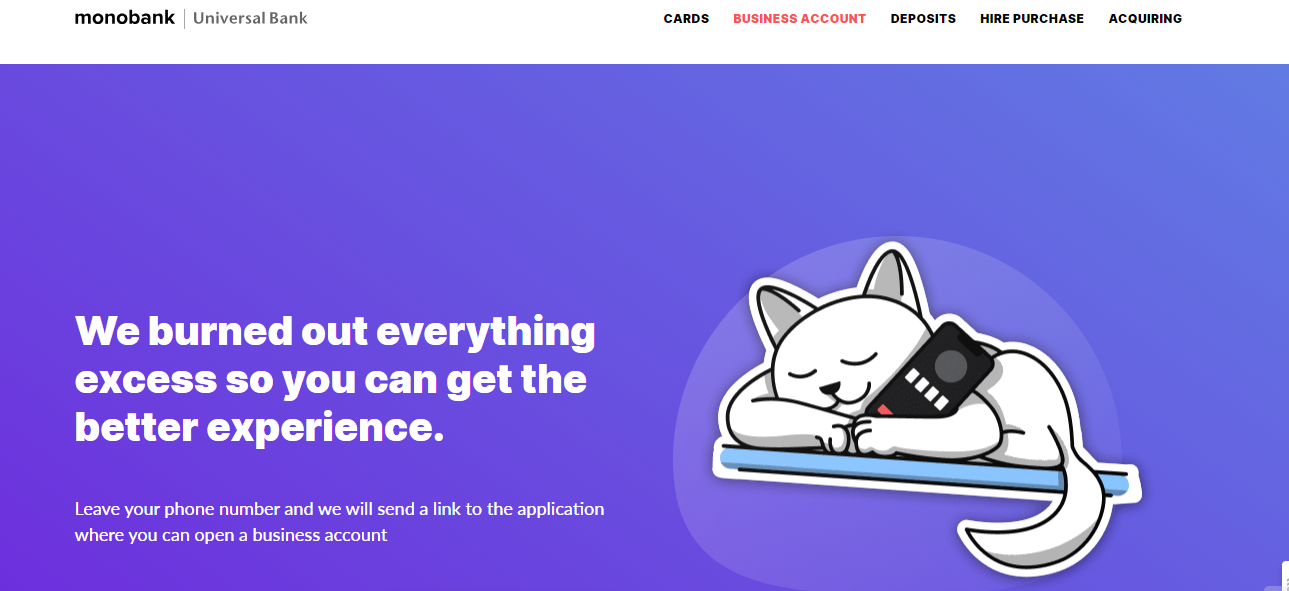
Monobank, Ukraine's first mobile bank, was founded in 2017 with a single message: Banking may be enjoyable.
We know banking isn't the most pleasurable experience.
However, Monobank has attempted to change this through gamification. Monobank's philosophy is based on offering relevant content to its customers through an engaging user experience.
QR Cat, their charming, colourful, and quirky animated mascot, is the testimony of this.
This concept can also be found in the app's various features:
Shake to Pay: Monobank has developed a technique in which two users merely shake their phones to initiate a transaction.
Reward Badges?You can earn rewards by completing various financial challenges, such as sharing a bill or spending money in different countries.
Sports Deposit Account?Users who walked 10,000 steps daily received a 21% savings rate from Monobank, and those who failed three days in a row received a lesser rate.
Monobank is a fintech content marketing example that puts gamification to good use.
2)Plaid: Easy Payment Processing Through a CRM-type APP
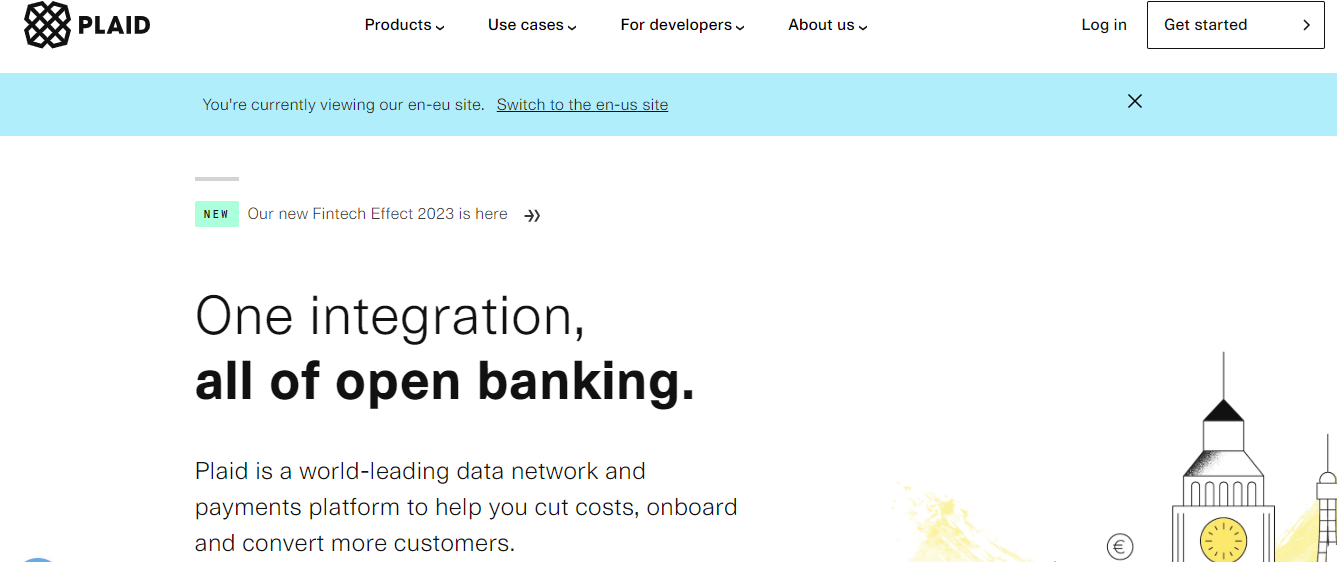
Plaid raises brand exposure and engagement with customer Q&A, narrative, problem-solving, and reports.
Their distinct visual identity brings personality to the content.
Why are Plaid Blog articles particular?
a) They are written in the brand's tone and voice
b) Their manner is straightforward
c) Articles contain more than one clickable tag
d) They are meant for more than one audience
Plaid provides material for users to better understand how Plaid works and keep data secure.
It also provides custom content to developers, such as API documentation and resource libraries.
Their smooth platform allows you to :
a) Quickly get and examine banking data
b) Real-time data access
c) Up-to-date insights on your financial activity
Plaid integration with your applications is easy because of the developer-friendly APIs.
3) One Degree: Hong Kong Digital Insurer
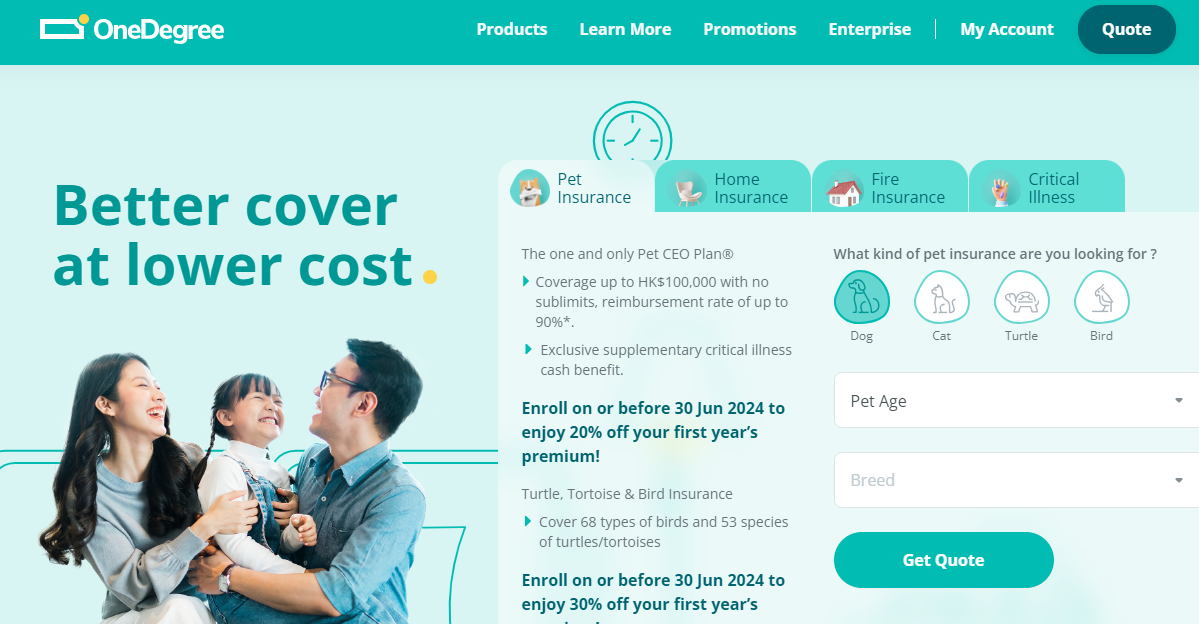
One Degree offers a simple but robust blog organized to help users quickly locate the most relevant content.
Blog posts are divided into sections, such as:
a)Pet Classroom
b) Home Buyers Tips
c)Health Hub
d)Pet Insurance
e) Critical Illness Insurance
f) Fire Insurance
h)Home Insurance
These blogs provide you with :
a) Helpful Recommendations: straightforward tales that are conversational and interesting, and you don't feel as if you're reading some dull financial document
b) Sophisticated Insurance - They present you with Insurance Information in an understandable manner that is not overly promotional
c) Healthcare Information - To assist people in making better insurance decisions.
d) Insurance 101 Component - This simplifies significant insurance jargon into simple consumer language

Content marketing can be a significant advantage for businesses in the fintech industry. By delivering high-quality, relevant, and consistent content that solves their audience's problems, companies can increase engagement, improve awareness, and create sales leads.
A potential customer?s trust is essential for any financial services company's success. A fundamental way to build trust is to provide valuable information to your target audience. When you do that, you help your audience make informed decisions. This can make them much more likely to do business with you.
Effective content marketing can attract new customers and foster long-term relationships with existing ones. If your business has been struggling to connect with your audience, content marketing may be the solution you?ve been looking for.
It can potentially have positive effects on the fintech industry, particularly, where trust and consumer confidence are critical.
4)Goodbox: How to Promote Your Brand through Charity
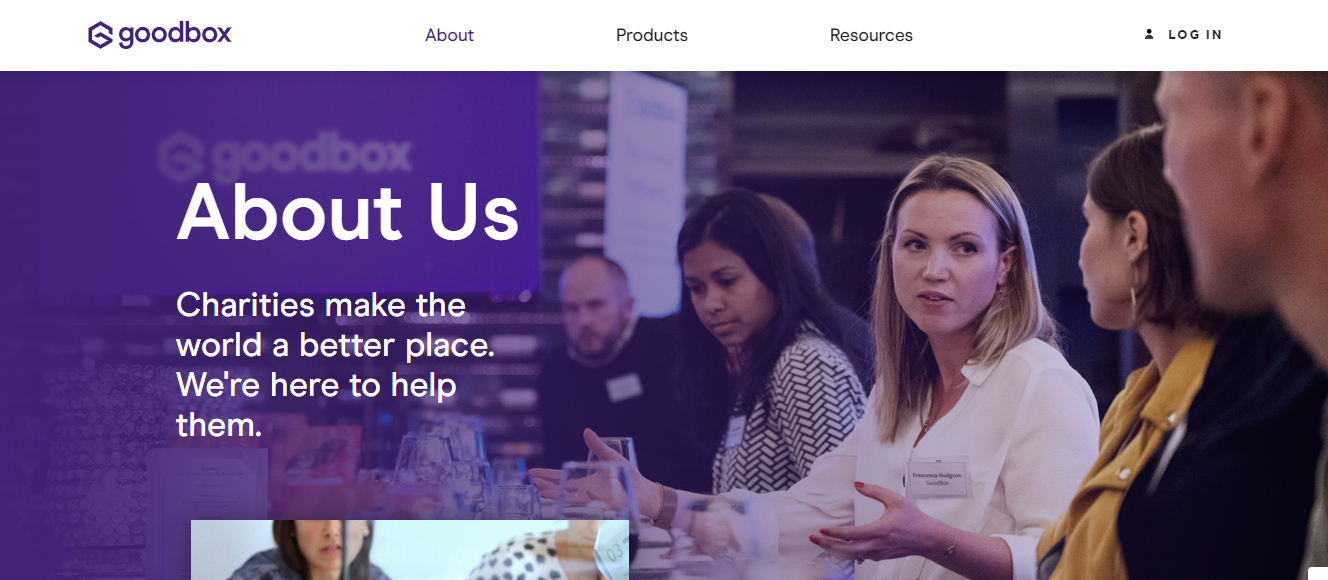
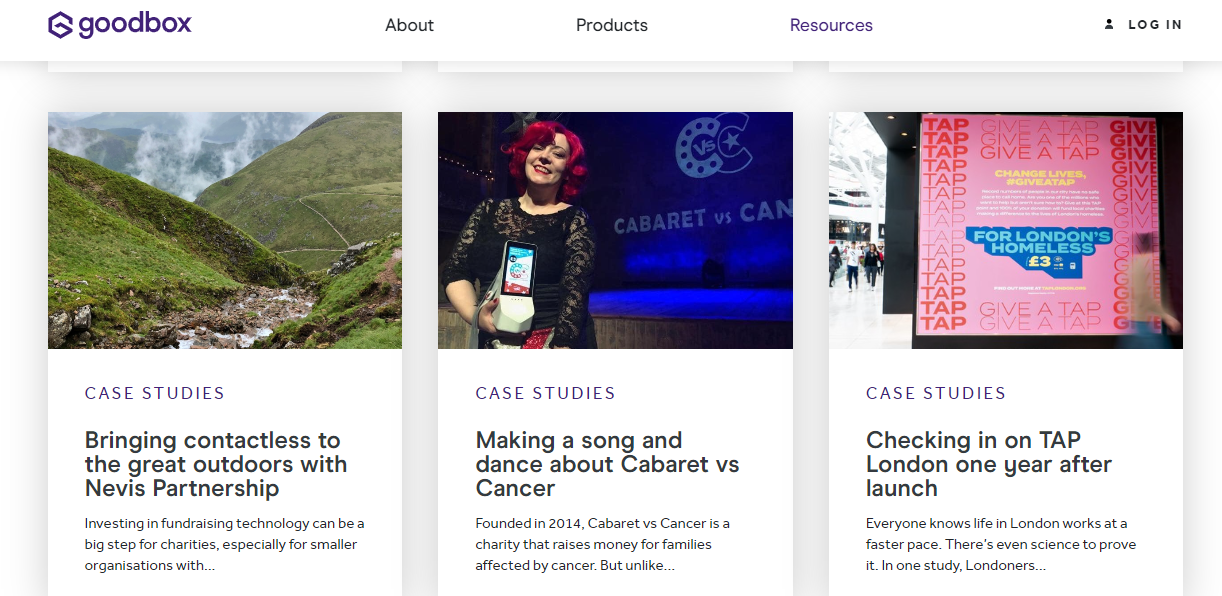

Goodbox is a technology firm focused on developing solutions that assist charities and fundraisers, whether corporations or individuals.
Altruism runs through our genes. We can?t avoid it.
As a result, Goodbox publicizes charity activities that a
company undertakes to reach
different demographics.
GoodBox has developed a solution for charity organizers, as they have designed digital charity boxes that allow for contactless
donations.
Until today, hundreds of charities have contacted Goodbox, which has raised millions of pounds in donations.
Their social media accounts are brimming with case studies of nonprofit organizations they've helped.
Conclusion
As we stand on the cusp of 2024, the future of content marketing for B2B professional services and fintech industries is filled with immense possibilities and opportunities. Embracing innovation, personalization, and a customer-centric approach will be vital to staying ahead in this rapidly evolving landscape. By harnessing the power of technology, data analytics and engaging content formats, businesses can establish themselves as thought leaders and build lasting relationships with their target audience. The rice of influencer and user-generated content presents a unique chance for brands to connect authentically with their audience, fostering trust and loyalty. Integrating AI-driven solutions and leveraging automation tools will streamline processes and enhance the efficiency of content marketing strategies. With a focus on creating compelling, multi-platform content that resonates with audiences on a deeper level, companies can drive meaningful engagement and achieve tangible results in the future.
PS: We provide B2B content marketing for fintech and professional services.